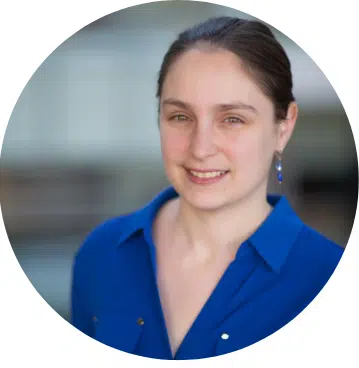
Researcher Spotlight
Researcher Spotlight: Natalie Grover, MD
The University of North Carolina at Chapel Hill

Although a majority of patients with Hodgkin lymphoma (HL) are cured with first-line therapy; about 15 percent of those patients experience primary refractory disease or relapse after an initial response to treatment. Chimeric antigen receptor (CAR) T cells are immune cells re-engineered to attack cancer cells. Although these immune cells have shown promise in treating B-cell lymphomas, alternative targets are needed for lymphomas that lack CD19 expression, including classical Hodgkin lymphoma (cHL).
Dr. Grover’s LRF grant project is a phase I clinical trial in which CAR T cells targeting CD30, a marker on malignant HL cells, are modified to express a protein calledell CCR4, which helps guide the CAR T cells to the tumor site. The successful completion of Dr. Grover’s project will provide a novel therapeutic approach for relapsed/refractory HL patients who do not have other available treatment options. This research will also help design future studies that can improve the trafficking of CAR T cells to other types of cancers.
Dr. Grover received her MD at Case Western Reserve University and is now an Assistant Professor of Medicine and the Clinical Director of the Cellular Therapy Program at the University of North Carolina at Chapel Hill (UNC). Her interest in lymphoma sparked during her hematology/oncology fellowship at UNC. While working with past LRF grantee Dr. Steven Park (The Center for Biomedical Engineering and Science/UNC Charlotte), Dr. Grover became drawn to the heterogeneity of the lymphomas as well as the possibilities for novel targeted agents and immunotherapies. Through the encouragement and mentorship of Dr. Park, and other hematology and oncology experts at UNC, Dr. Grover became involved with cellular therapy research. “I became excited to have the opportunity to be on the cutting edge to investigate the possibilities and innovative approaches of this novel therapy in other lymphomas,” says Dr. Grover.
During her time in LRF’s CDA program, she hopes to improve her knowledge of immunology and the pre-clinical development of cellular therapy. “Through these learning opportunities provided by funding from the [CDA] grant and completion of the current proposal, I will gain the necessary skills to achieve my career goal of developing effective cellular therapy clinical trials in lymphoma that improve patient outcomes and further advance the field of CAR T cell therapy,” she shares. Her long-term career goals include becoming an expert in cellular therapy in lymphoma as an experienced clinical trialist who has a deep understanding of the biology of CAR T cells.

